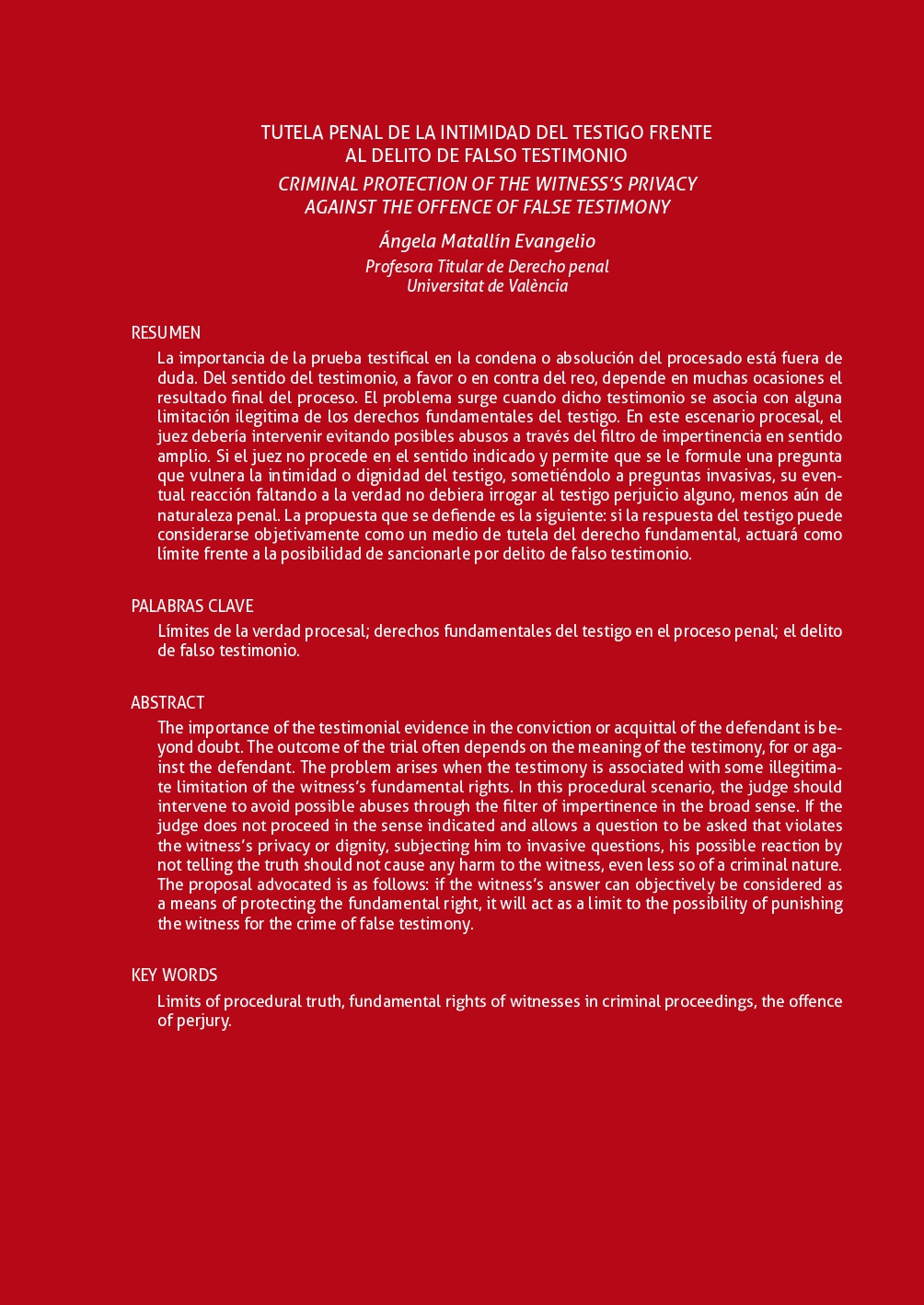CRIMINAL PROTECTION OF THE WITNESS’S PRIVACY AGAINST THE OFFENCE OF FALSE TESTIMONY
DOI:
https://doi.org/10.36151/td.2022.060Keywords:
Limits of procedural truth, fundamental rights of witnesses in criminal proceedings, e offence of perjuryAbstract
The importance of the testimonial evidence in the conviction or acquittal of the defendant is beyond doubt. The outcome of the trial often depends on the meaning of the testimony, for or against the defendant. The problem arises when the testimony is associated with some illegitimate limitation of the witness’s fundamental rights. In this procedural scenario, the judge should intervene to avoid possible abuses through the filter of impertinence in the broad sense. If the judge does not proceed in the sense indicated and allows a question to be asked that violates the witness’s privacy or dignity, subjecting him to invasive questions, his possible reaction by not telling the truth should not cause any harm to the witness, even less so of a criminal nature. The proposal advocated is as follows: if the witness’s answer can objectively be considered as a means of protecting the fundamental right, it will act as a limit to the possibility of punishing the witness for the crime of false testimony.
Downloads

Downloads
Published
How to Cite
Issue
Section
License
Copyright (c) 2022 Teoría & Derecho. Revista de pensamiento jurídico

This work is licensed under a Creative Commons Attribution-NonCommercial-NoDerivatives 4.0 International License.




















